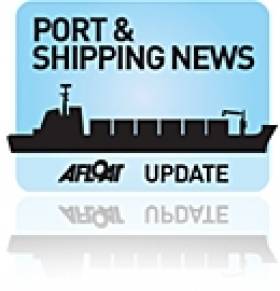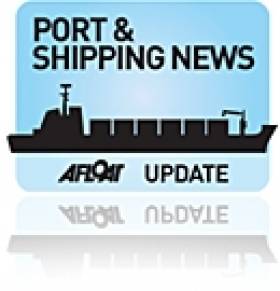Displaying items by tag: Clean Fuels Strategy
European Sea Ports Organisation Welcomes First Reading Agreement on Clean Fuel Strategy
#CleanFuels - Negotiators for the European Parliament and the Council reached an informal first reading agreement yesterday on the Clean Fuel Strategy. If confirmed by EP's Transport Committee and Plenary, the Directive could still be adopted before the EU elections and finalised under the Greek Presidency.
"We would like to congratulate the negotiators for reaching this agreement. European ports and stakeholders now have a clear view of what is expected from them and can start or continue working towards that goal. The obligations foreseen in this Directive imply quite some investments and planning for the port authorities and port industry. We are convinced that this Directive together with the funding opportunities that will be offered under the forthcoming TEN-T calls will enhance the use of cleaner fuels in maritime transport in a realistic way. We also believe that a lot of ports will not wait for 2025 to meet the obligations of this Directive", said European Sea Port Organisation (EPSO), Secretary-General Isabelle Ryckbost.
The two issues of importance to ports in this Directive are the framework for the supply of shore side electricity and the obligations as regards the provision of refuelling points for LNG in ports.
On shore side, Member States must ensure that the need for shore-side electricity supply for inland waterway vessels and sea-going ships in maritime ports is assessed in their national policy frameworks. Such shore-side electricity supply shall be installed, as a priority in ports of the TEN-T Core Network, and in other ports, by 31 December 2025, unless there is no demand, the costs are disproportionate to the benefits, including environmental benefits.
As regards the LNG refuelling points, Member States must ensure that an appropriate number of refuelling points for LNG are put in place at maritime ports to enable LNG inland waterway vessels or sea-going ships to circulate throughout the TEN-T Core Network by 31 December 2025 at the latest. Member States must cooperate with neighbouring Member States where necessary to ensure adequate coverage of the network.
ESPO urges EU Parliament and Council to reach Agreement on Clean Fuel Strategy before EU Elections
#CleanFuels- The EU's parliament and council are to discuss in a meeting today the so-called "trilogue" on the Clean Fuel Strategy to reach a compromise and find a solution on the outstanding issues.
If necessary, another trilogue is foreseen in two weeks-time. If an agreement can be found, it can be endorsed by the Parliament before the elections.
European Sea Port Organisation (ESPO) fully supports the Clean Fuel Strategy proposal as a way to promote and enhance the use of alternative fuels as a means to further improve as much as possible the environmental footprint of the different modes of transport.
"This strategy is important because it sets out a plan for Member States and stakeholders to work towards alternative fuels. We hope that this strategy is finalised soon, in view of giving the different stakeholders a clear sign on where to go and allowing them to start or continue working towards that goal. We therefore urge the Parliament and the Council to do everything possible to reach a first reading agreement", says ESPO's Secretary-General Isabelle Ryckbost.
Two of the issues under discussion are of importance for seaports: the deadline for the provision of LNG refuelling points in core network ports and the conditions under which shore side electricity has to be provided in ports.
European ports are in favour of the pragmatic approach that is taken by both European institutions regarding the deployment of LNG refuelling points in core TEN-T ports. The aim here should be the deployment of a sufficient network of LNG refuelling points taking market realities and distances between ports into account.
ESPO agrees with the Parliament that it makes sense for such an LNG refuelling network to be deployed already by 2020 in consistency with the entering into force of the sulphur Directive. It is of outmost importance though that the relevant co-funding possibilities for LNG projects are ensured also after the 2014- 2020 period.
As regards shore side electricity, ESPO considers a compromise obliging core TEN-T ports to provide shore side electricity wherever there is demand, the costs are not disproportionate to the benefits and there is significant positive impact on the environment, as acceptable for both institutions.
The deadline for meeting this obligation is of a lesser importance to ESPO. If, as a result of an assessment it seems that shore side electricity is the most viable solution for the whole or a part of the port, ports should not wait until 2020 or 2025.
Over the last years, and in absence of any regulatory obligation, several European ports have been actively supporting this technology and exploring the possibility of providing shore side electricity in their berths. In some cases, this has lead to successful implementation projects.
At the same time, shore-side electricity must be seen as one of the pillars of a more comprehensive clean fuel strategy and might in that respect not always score as the "best" solution in terms of environmental benefits in all ports or on all berths. Ports must assess the full picture and look at this technology in combination with LNG and other upcoming innovative solutions.
"The aim of this Strategy should be to push ports to reflect as soon as possible on their way to enhance the use of cleaner fuels. Shore side electricity is certainly one of the pillars of such a strategy and reflection. If cost-effective and wherever it comes out as the best environmental solution, it should be installed. But we should not see this technology in isolation.
For berths where only LNG fuelled ships are arriving, such a technology is completely redundant. It is also clear that technologies in the field are evolving constantly. We should give ports the possibility to adapt to and invest in those as well", adds Isabelle Ryckbost.

























































